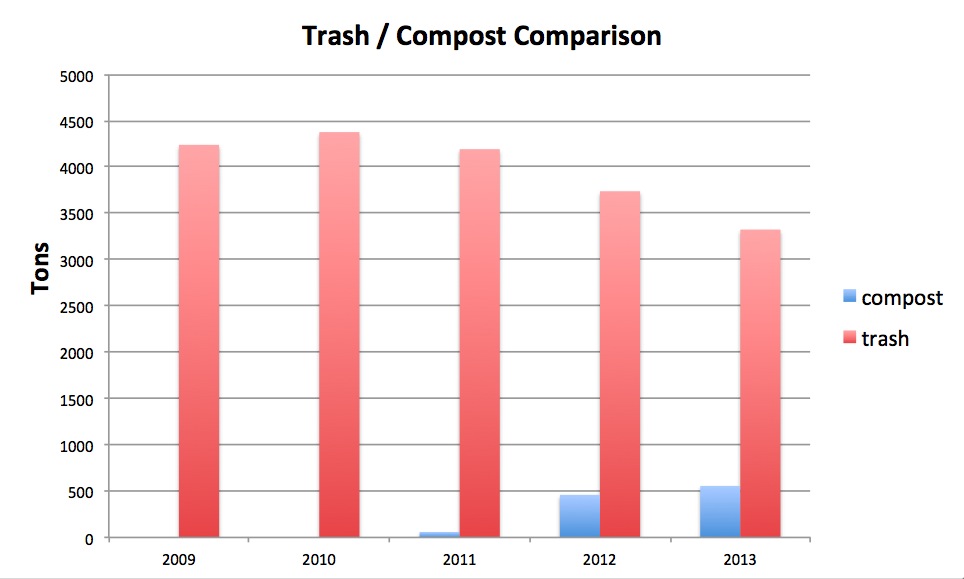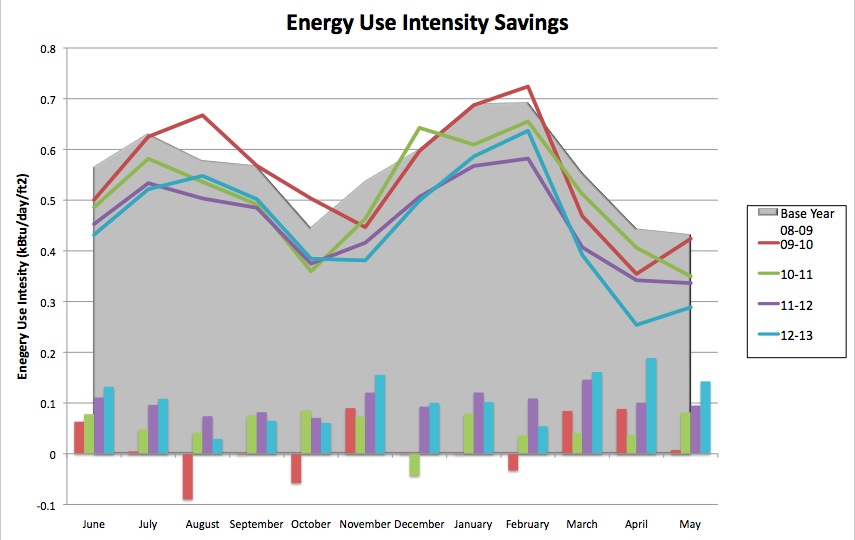ENERGY: Five Steps in Five Years
Energy efficiency is one of the biggest keys to sustainability. If you want to green your company and save money, you cannot avoid dealing with energy.
One of our clients, a major institution, has spent the past five years on various efforts to trim their energy use and costs. The result, a year-over-year improvement, can be seen in the graph below, with the 2011/12 and 2012/13 fiscal years showing the biggest drop in energy use. The amount of energy reduced from the first year baseline is represented by the bars below the graph.
So what did they do?
Savings came from strategic planning, of both timed projects and ‘best practices’ maintenance. Among their efforts were these five steps:
- A large scale retrofit was conducted, changing out much of the lighting to higher efficiency fixtures.
- Expansion of building automation systems with more dimmers, sensors and other controls.
- Maintenance and repair of mechanical system infrastructure.
- Addition of reflective roof coverings.
- Optimization of high efficiency chiller plant.
(click on image to see larger graph)
WASTE: Pushing the Final Frontier with Composting
Waste is the other big portion of any sustainability plan and composting is emerging as the final frontier of waste and recycling. Many organizations that already have solid waste reduction programs in place are realizing that composting may be one of the few ways left to improve corporate sustainability goals.
Great Forest worked with a major commercial-residential complex in midtown Manhattan to develop and monitor a back-of-house composting program, which has diverted nearly 1,000 tons of organic waste from the landfill since the program’s inception, and 500 tons in 2013 so far.
In the five-year chart above, you can see that the complex’s trash totals were on the rise in 2009 and 2010 before starting to drop steadily over the next three years following the implementation of the composting program in 2011.

